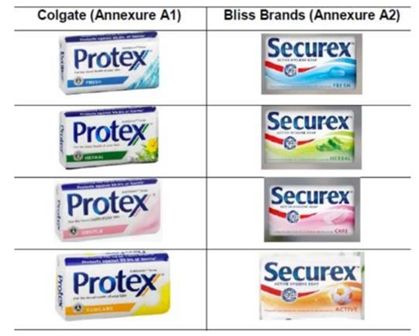Some readers will be aware that for many years, IP rights holders have used the South African advertising regulatory system as a relatively inexpensive and easy alternative to High Court proceedings for claims of intellectual property (primarily trade mark) infringement and passing-off.
The Bliss Brands case
Some readers will also be aware that there has for some time been controversy and litigation over the jurisdiction and powers of the Advertising Regulatory Board ("ARB"). The case of Bliss Brands (Pty) Ltd v Advertising Regulatory Board NPC and Others has now reached its conclusion, with the Constitutional Court having its say.
The issue
The issue in the Bliss Brands case was whether the ARB has the authority to take regulatory action against a company that is not a member of the organisation, in this case, Bliss Brands.
The ARB Code
The ARB has a Code of Advertising Practice which provides that:
- The ARB is an independent, voluntary entity.
- The ARB's core function is to make sure that advertising by its members accords with the Code.
- The relationship between the ARB and its members is contractual and members are bound by the Code.
- The Code requires members to refuse any advertising that is in conflict with the Code.
- The ARB has no jurisdiction over non-members (unless they have voluntarily submitted to its jurisdiction), however, it can still issue rulings for the benefit of its members, who will be bound by the ruling. Such rulings can indirectly negatively impact non-members – an example of this is an "ad alert", which requires ARB members to refuse to accept a particular advert, or remove it if it has already been published, where such advert has been found to be non-compliant with the Code.
A breach of the Code
Colgate Palmolive (Pty) Ltd and Colgate-Palmolive Company ("Colgate") are competitors of Bliss Brands. The two companies lodged a complaint about Bliss Brands with the ARB. The complaint went something like this:
The packaging of a Bliss Brands SECUREX soap product breached the Code by imitating the packaging architecture of Colgate's PROTEX soap, thereby improperly exploiting the advertising goodwill of Colgate's PROTEX product.

The various ARB findings
Despite being a non-member of the ARB, Bliss Brands participated at various levels of the ARB at which the issues were considered and eventually, the matter ended up with the ARB's Final Appeal Committee ("FAC"). The FAC held that Bliss Brands should stop its use of the SECUREX packaging, ruling that it was non-compliant with the Code.
Up to the High Court
Bliss Brands approached the Gauteng High Court for a review of the FAC decision. The High Court questioned the constitutionality of the ARB's powers and held that the ARB's Memorandum of Incorporation ("MOI") is unconstitutional and invalid because it allows the ARB to adjudicate complaints concerning the advertisements of non-members. The judge said that the ARB has no jurisdiction over non-members in any circumstances and that it may not issue rulings in relation to non-members or their advertising.
The Supreme Court of Appeal ("SCA")
We have previously written about the SCA's decision in this matter, so we'll keep this short and sweet. The SCA reversed the High Court's decision, criticising it for raising issues that had not been properly raised by Bliss Brands. The SCA held that "absent a submission to jurisdiction, the ARB may only make rulings on the advertisements of non-members for the benefit of its own members, which are not binding or legally enforceable against non-members. The impact of ARB rulings on non-members is therefore indirect, in cases where they engage the services of an ARB member to approve, create, disseminate or publish their advertising. Members of the ARB are bound to comply with the Code and ARB decisions and are obliged to decline to approve, create or carry advertisements that breach the Code. Non-members who do not wish to meet the ethical standards contained in the Code are free to approve, create and publish their advertising using the services of non-members of the ARB".
The SCA found that Bliss Brands had consented to the ARB's jurisdiction by voluntarily participating in the ARB's processes. Bliss Brands applied for leave to appeal this judgment to the Constitutional Court.
The Constitutional Court
Judge Madlanga said that if the Constitutional Court were to find that Bliss Brands had in fact submitted to the ARB's jurisdiction, the other grounds of appeal (such as the ARB's jurisdiction over non-members who have not so submitted) would become academic. The judge then went on to find that a submission to jurisdiction had taken place.
The judge said that Bliss Brands had submitted a detailed response to the merits without objecting to the ARB's jurisdiction. The company's attorney had not only addressed the merits of the case but also requested that if the ARB found against the company, it should be given a term of six months to withdraw or amend its product packaging. The judge said this:
"This was an unambiguous intimation by Bliss Brands that it was submitting itself to the ARB's jurisdiction. It participated at all stages of the ARB proceedings without a whimper of protest. It was happy with the Directorate's finding (the first instance finding) which was in its favour."
The judge went on to say this:
"Ordinarily this Court does not grapple with contested factual issues...[but] there is an exception to this rule. Where the dictates of justice so require, an appellate court may interfere with the factual findings of a lower court. I can conceive of no basis on which the ordinary rule should not apply to the factual findings made against Bliss Brands by the Supreme Court of Appeal. Therefore the application for leave to appeal must fail. To conclude, because Bliss Brands consented to the jurisdiction of the ARB, it is not in the interests of justice to entertain any other issue in this matter."
So, leave to appeal was refused and the SCA's judgment remains binding, providing much-needed clarity on the extent of the ARB's powers. Finally, the end of a long saga!
Reviewed by Gaelyn Scott, Head of ENSafrica's IP practice.
The content of this article is intended to provide a general guide to the subject matter. Specialist advice should be sought about your specific circumstances.

